Bairan Fu
Modeling Users' Contextualized Page-wise Feedback for Click-Through Rate Prediction in E-commerce Search
Mar 29, 2022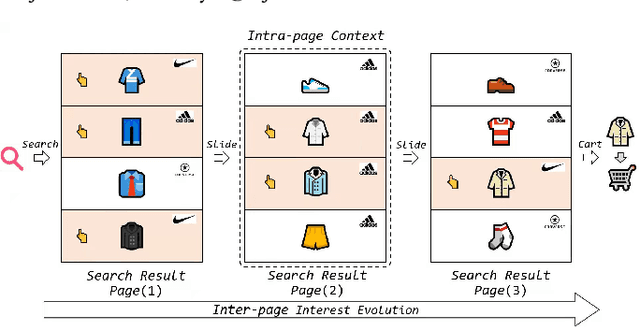

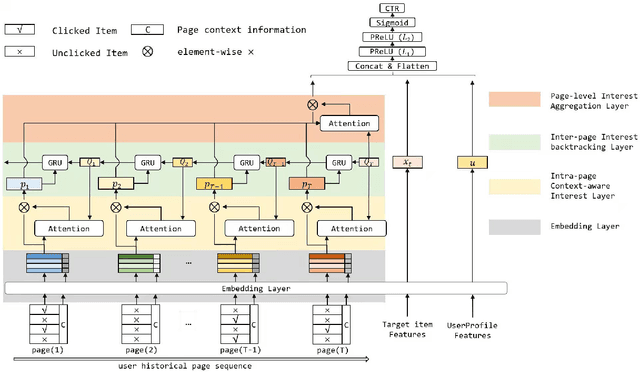

Abstract:Modeling user's historical feedback is essential for Click-Through Rate Prediction in personalized search and recommendation. Existing methods usually only model users' positive feedback information such as click sequences which neglects the context information of the feedback. In this paper, we propose a new perspective for context-aware users' behavior modeling by including the whole page-wisely exposed products and the corresponding feedback as contextualized page-wise feedback sequence. The intra-page context information and inter-page interest evolution can be captured to learn more specific user preference. We design a novel neural ranking model RACP(i.e., Recurrent Attention over Contextualized Page sequence), which utilizes page-context aware attention to model the intra-page context. A recurrent attention process is used to model the cross-page interest convergence evolution as denoising the interest in the previous pages. Experiments on public and real-world industrial datasets verify our model's effectiveness.
Dual Side Deep Context-aware Modulation for Social Recommendation
Mar 16, 2021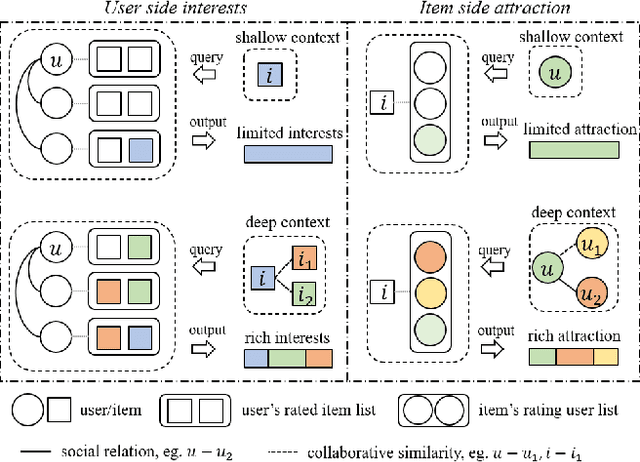
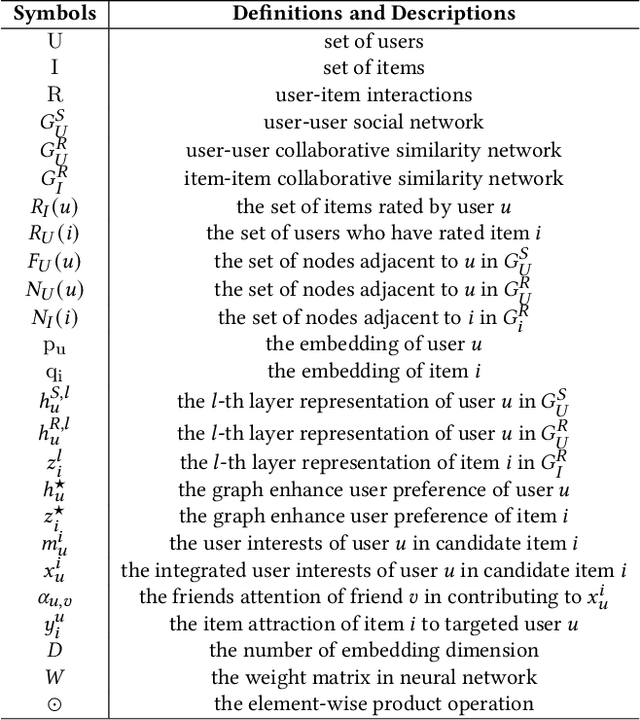
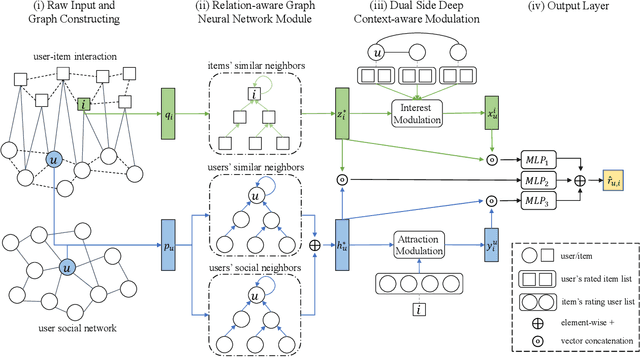
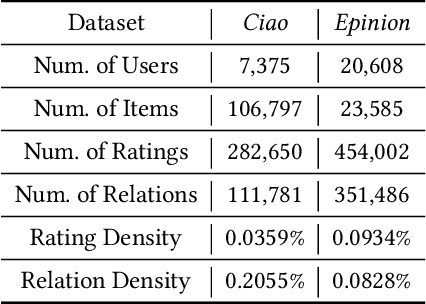
Abstract:Social recommendation is effective in improving the recommendation performance by leveraging social relations from online social networking platforms. Social relations among users provide friends' information for modeling users' interest in candidate items and help items expose to potential consumers (i.e., item attraction). However, there are two issues haven't been well-studied: Firstly, for the user interests, existing methods typically aggregate friends' information contextualized on the candidate item only, and this shallow context-aware aggregation makes them suffer from the limited friends' information. Secondly, for the item attraction, if the item's past consumers are the friends of or have a similar consumption habit to the targeted user, the item may be more attractive to the targeted user, but most existing methods neglect the relation enhanced context-aware item attraction. To address the above issues, we proposed DICER (Dual Side Deep Context-aware Modulation for SocialRecommendation). Specifically, we first proposed a novel graph neural network to model the social relation and collaborative relation, and on top of high-order relations, a dual side deep context-aware modulation is introduced to capture the friends' information and item attraction. Empirical results on two real-world datasets show the effectiveness of the proposed model and further experiments are conducted to help understand how the dual context-aware modulation works.
 Add to Chrome
Add to Chrome Add to Firefox
Add to Firefox Add to Edge
Add to Edge